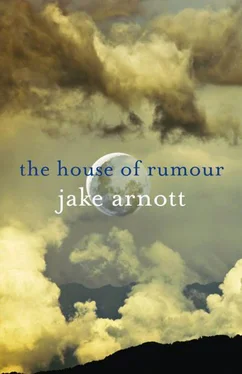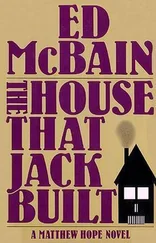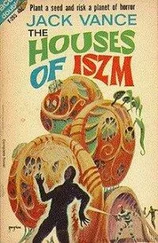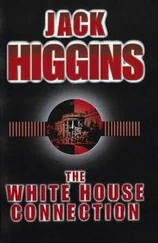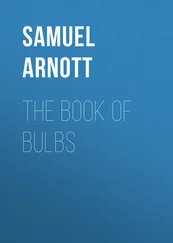‘It’s true some people on our side believed in some pretty strange things. Even Fleming was convinced that the whole episode had been predicted in a novel.’
‘Precognition: there’s proof of it everywhere.’
‘Proof, that’s a good one. You know, you can be very limited in your ability to spot fakery.’
‘You think so?’ Judd glared at Trevelyan and refilled their glasses. ‘Well, maybe I can spot one now.’
‘What’s that supposed to mean?’
‘We always wondered about you, Marius. In the Service.’
‘Not this again, Eric.’
‘It was never much a question of political loyalties but, you know.’ Judd gave a shrug. ‘We often wondered which side you batted for.’
Trevelyan swallowed a gulp of whisky. He sighed sharply.
‘Shit-house gossip.’
‘Gibbs had the best theory,’ Judd went on. ‘Remember Gibbs from field projects? Well, he always said: “Trevelyan? Likes a bit of both but doesn’t get much of either”.’
‘I’d forgotten just how full of shit and shit-house gossip you were, Eric.’
‘Old times, eh, Marius?’ He raised his glass once more. ‘Old times.’
‘Should have left you to rot in the Scrubs.’
‘One of the best, you were. No one could ever work you out.’
No, thought Trevelyan, and no one ever will. There had always been two sides, two possibilities. The self and the other self. A double agent. Something Fleming had once let slip. The man inside. The unknowable one.
Back at his flat he found it hard to settle. He paced around, trying to align his thoughts. The Hess affair had come at the very beginning of his career in deception. Now it still haunted him at his retirement. Like his own life, the case was shrouded in rumour and now it conjured other remnants of intelligence. Things that he couldn’t possibly include in his report. Perhaps he should book an appointment with the staff counsellor, he mused. The modern confessional: therapy, analysis. All this fear in the Service of officers going public. They didn’t have to worry about him.
But he did have the sudden urge to write something, not for anybody else but for his own record. A memory system in which he might encode something of himself. A narrative, something more like a short story than a file or a dossier. He found a pad of paper and a pen and poured himself a brandy. The warm fuzz from the scotch he had shared with Judd was dying out. He rekindled the glow. All that shit-house gossip, yes, that was part of it too. He remembered an anecdote, something that he could hang a few ideas on. Yes. And the title came to him at once. That image Eric had used, a great symbol of ambiguity. He quickly wrote the heading: The Hanged Man .
‘Suck my pussy,’ she commands and pushes her penis into his mouth.
Sweet dissembler, mistress of disinformation, of transubstantiation. His mind is a labyrinth of corridors, a bal masqué , a school of night. Her flesh unhoods itself against his tongue, a worm uncoiling, growing inside him. Oh yes, she’s in the same trade as him. The art of deception.
She looks down as he groans ungrudgingly. An easy mark, a grateful punter. She won’t have to give him much. She’ll be quick.
A fluid pulse on his palate. Too soon, he thinks, surely. But no, another swift surprise, a secret blessing. She is pissing in his mouth.
On his last day at Curzon Street, Trevelyan carefully initialled off all the files he had drawn and arranged for a desk officer to take them back to Archive and Registry. A secretary came to shred all his handwritten notes and memoranda into a burn bag. He walked down the corridor to the Establishments office and signed off all his current secret indoctrinations with the duty officer. Then he went to see the director.
His report was on her desk.
‘It’s fairly routine stuff,’ he assured her. ‘Only one area of concern really.’
‘The note?’
‘Yes. I’ve come up with a theory about its source. Completely deniable, thank God, but it might be an idea to follow it up. Make sure it’s watertight.’
In the American files in Archive he had come across a file dated November 1969, a report that Hess had been transferred to the British Military Hospital in Berlin, suffering from stomach disorders and a perforated ulcer after a prolonged hunger strike. On the night of 29 November, the American commandant noted that Hess had declared on more than one occasion that he was sure he was going to die. Prisoner Number Seven had claimed that there had been instances when his heart had stopped beating and his pulse had disappeared. He had written a letter that night.
It was shortly after this incident that he agreed to receive visits from his wife and son, and on the first of these he mentioned his former secretary and his desire to explain his failure to recognise her at Nuremberg.
Trevelyan concluded that the ‘suicide note’ found in the summerhouse was actually a copy of the letter written when he was dangerously ill in 1969. Eric Judd was right: he had thought that he was going to die, only nearly twenty years earlier.
Had Hess been murdered? It seemed unlikely. More probable was that somebody had made a clumsy attempt to force a verdict of suicide on the inquest. Somebody with no sense of negritude. It would have to be dealt with. But not by him. It wasn’t his case any more.
He remembered what they used to say in the Political Warfare Executive: ‘There’s no such thing as intelligence, only counter-intelligence.’ In the last few days he had spent more time on his private narrative than with the official report. A personal account on how the case had marked his career, betraying a few secrets, offering a few conclusions. And something of a memoir of his own life. A chapter in his autobiography. Who had hanged the Hanged Man? He doubted if they would ever know for sure.
The story was in his briefcase. He was taking it with him. Completely against the rules, of course. He should have either submitted it or had it destroyed. But they didn’t have to worry about him going public. It was for his own amusement as much as anything. A souvenir for his own archive. A fragment of memory saved for posterity.
He said goodbye to the director and went out into the street. He hailed a cab and went to dine at his club. There was nobody there he knew. Such a lonely business, eating by oneself. For a moment he was overwhelmed with melancholy. He thought of Clarissa, his wife, who had died nearly twenty years before. The marriage had been a bit of a mistake really, but in the end they had learnt to bear each other’s company. He regretted that he had never found the time to thank her for putting up with his life of duplicity.
It was getting dark when he got home. As he was paying off the cab he saw the tart he had spotted that morning in Shepherd Market. Sturdy-looking and big-boned. A bit top-heavy. Oh yes. There is no excellent beauty that hath not some strangeness in its proportion. He went up to her.
‘Would you care to join me for a drink?’
She smiled.
‘You’re a naughty boy, aren’t you?’
‘Oh yes. Come back to my place.’
She didn’t waste much time once they were in his flat. She carried the collar and leash in her handbag. It often came in handy on occasions like these. Playing away from home.
To finish she allows him to masturbate on her boots then lick them clean. He begs her to stay just for a little while longer. He wants to talk.
He has been so lonely for so long. He needs to share something of his own secret life. He feels that she knows the code somehow, that she understands the double world.
‘What’s your name?’ he asks her.
‘Vita. Vita Lampada.’
‘Oh yes.’ He laughs gently at her cover name. ‘Like the Newbolt poem. “Play up! Play up!” ’
Читать дальше
